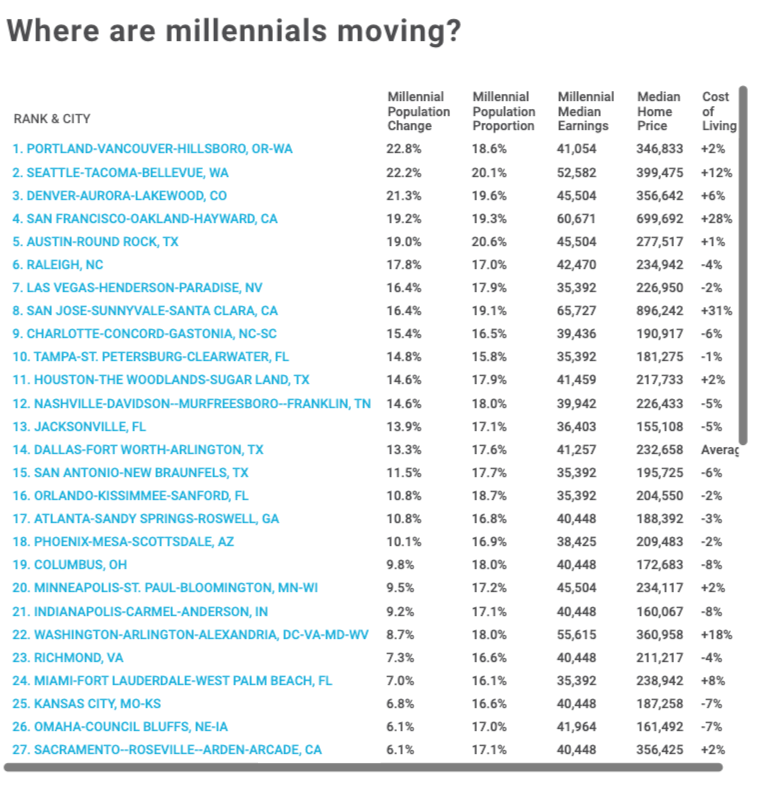Haven Life Insurance Agency LLC (Haven Life), an online life insurance agency, conducted a new study that reveals from 2012 to 2017, millennials moved to large metropolitan areas that already had large concentrations of them.
The survey noted that millennials are living a life of luxury in expensive neighbors with high wages, rising home prices, and an overall increase in the cost of living. In these areas, the experiences are abundant, and some districts even cater to the lifestyle of these youngsters.
Millennials flocked to large metro areas that have a high concentration of their fellow comrades despite higher home prices and cost of living. The data showed these folks aren’t moving to rural America nor the suburbs.
The reason for an extended stay in the city could be due to the delay in marriage and starting families — thanks to insurmountable student loan debts, high-interest credit card payments, and 72/84 month auto loans — has made their financial mobility limited.
Millennials are less price-conscious than any other generation, despite the fact that the 2008 financial crash was a little over a decade ago.
Haven Life examined data from the Census Bureau to compile a list of the top 50 cities. The life insurance agency also examined data from Zillow to determine its median home prices and data from the Bureau of Economic Analysis’s Regional Price Parity dataset for the cost of living figures.
Portland, Seattle, Denver, San Francisco, and Austin metropolitan areas were some of the hottest regions where millennials were moving to over the period.
Portland had the most significant percentage change in millennials of any large metro from 2012 to 2017. The cost of living is some of the highest in the country but not as expensive as San Francisco and Seattle. The main selling point for millennials is the city’s breweries, restaurants, bike lanes, hipster districts, parks, beaches, mountains, and the overall ease of living on the West Coast.
Seattle was the second most popular city for millennials, who were lured in by higher-paying jobs in the tech sector. Downtown Seattle is home to a number of Fortune 500 companies, including Amazon, Starbucks, and Microsoft.
Some of the cities that were on the bottom list were Rochester, N.Y., which saw a drop in millennials. Virginia Beach-Norfolk-Newport News, Va.-N.C also saw a sizeable drop in the younger population. Tucson, Ariz., came in last with a mass exodus of millennials over the period.
via ZeroHedge News https://ift.tt/2Ma8kgy Tyler Durden

